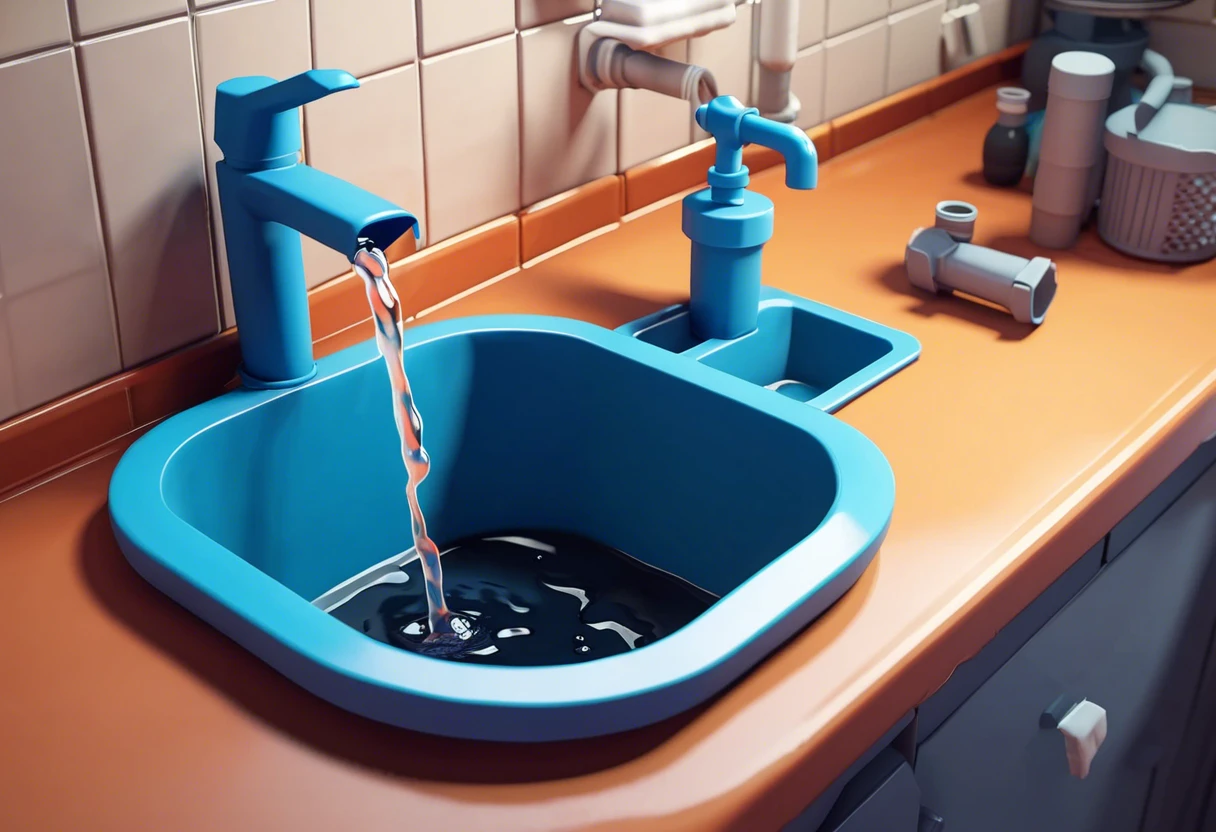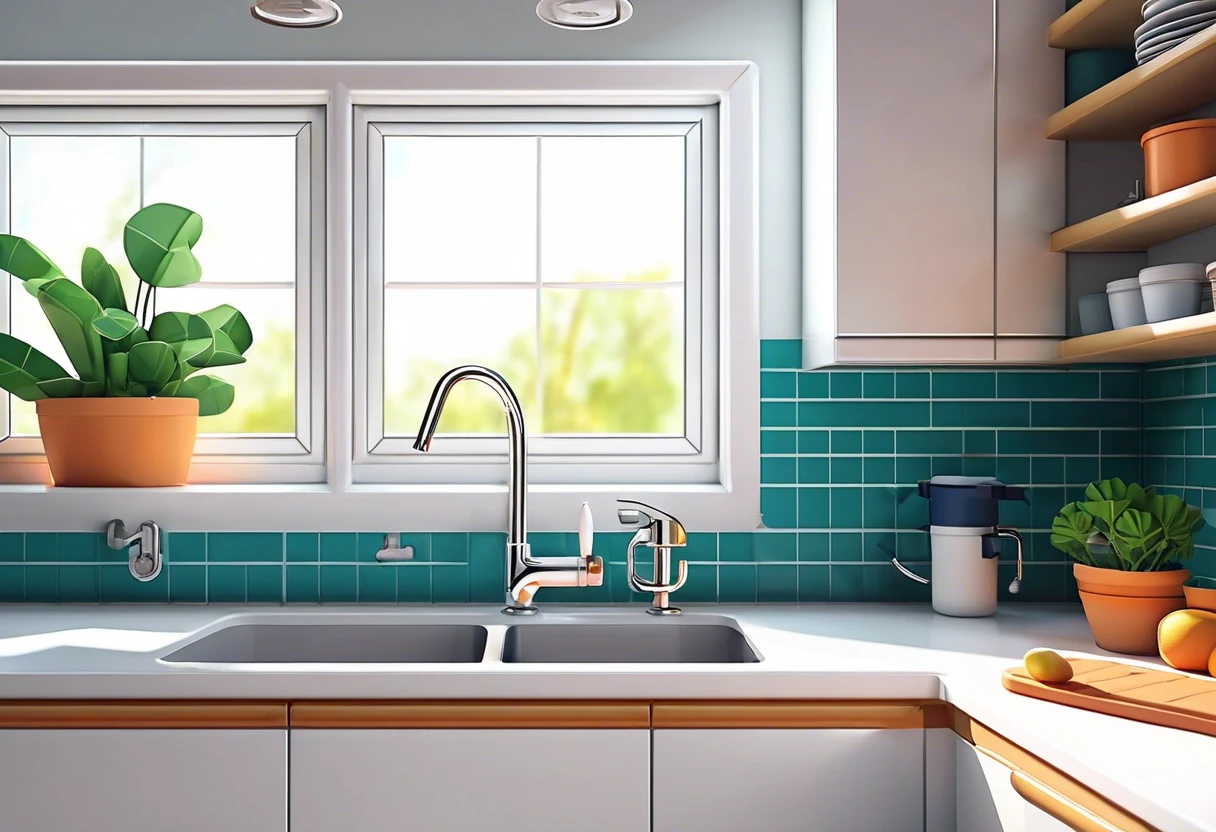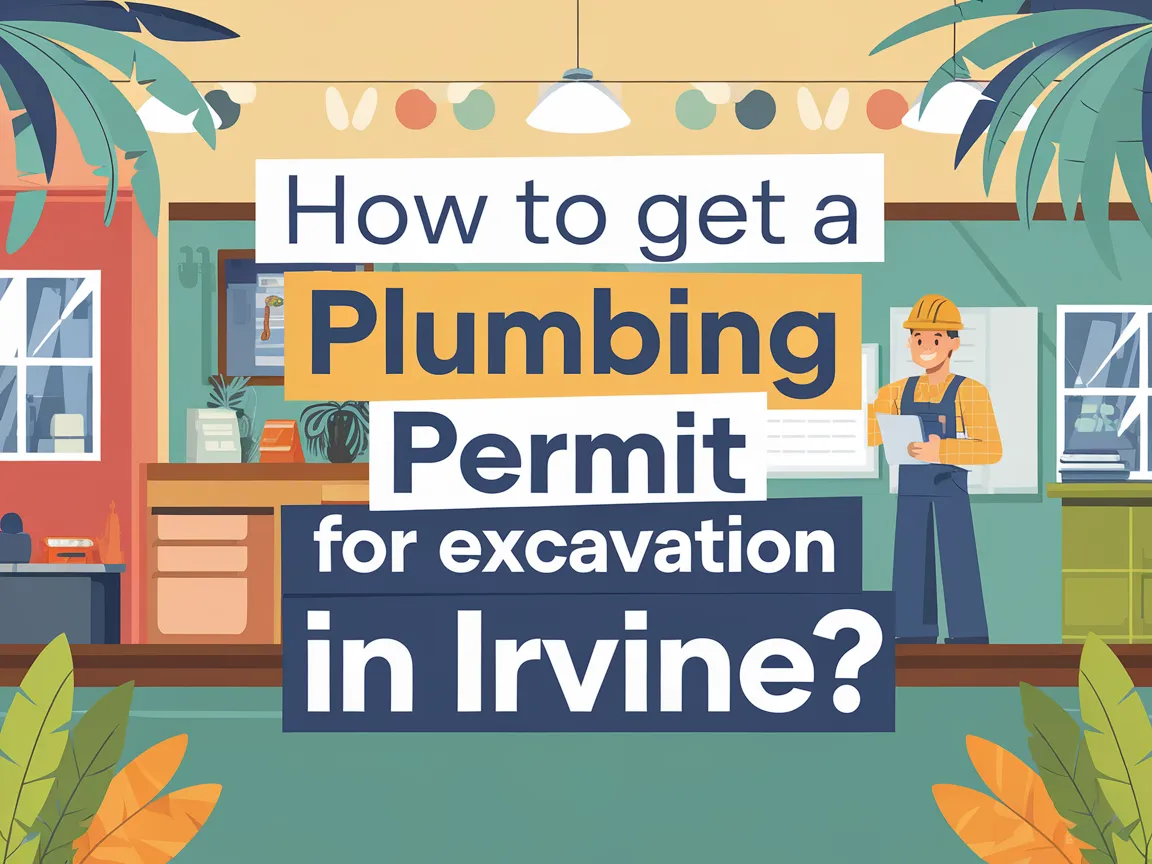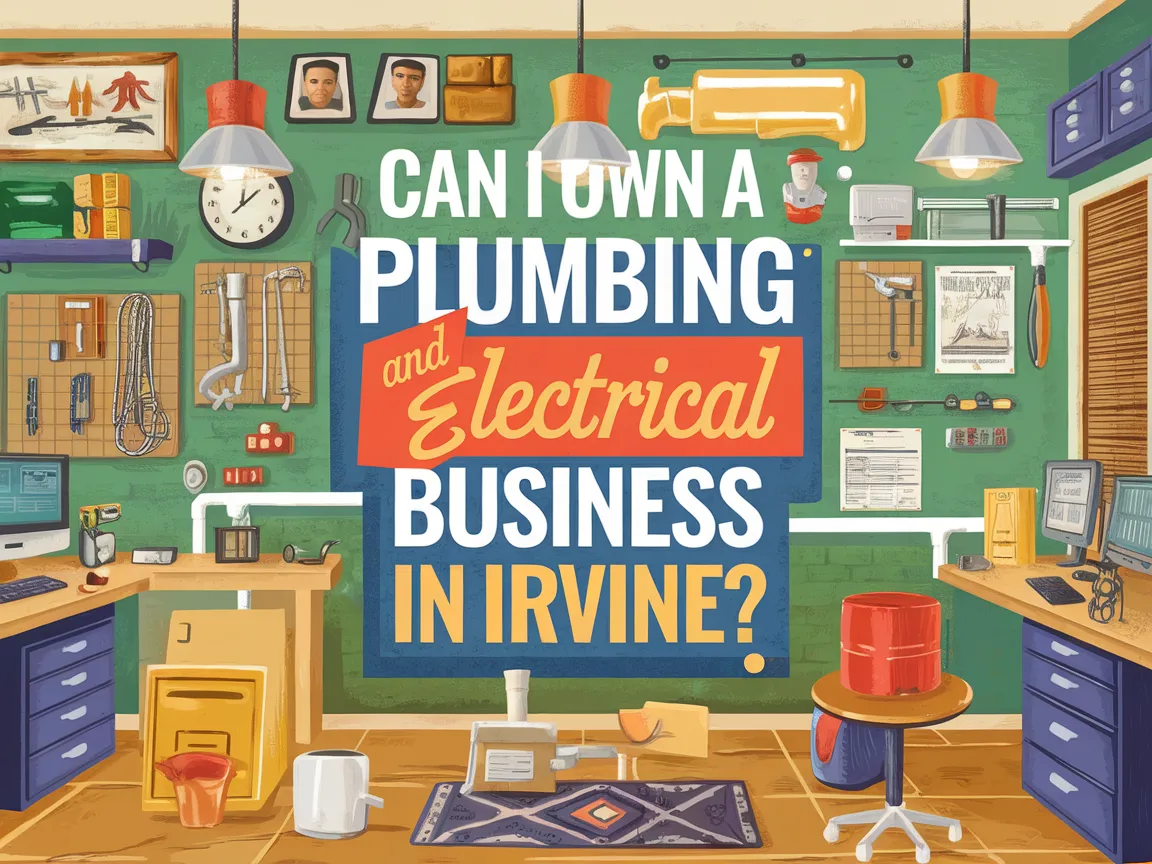Is Liquid Plumber Safe for PVC Pipes?
Last Updated: February 27, 2025
PVC pipes are plastic tubes used for plumbing in your house. They’re lightweight and help move water where it needs to go.
When I’m explaining a repair, people often want to know about is liquid plumber safe for pvc pipes. I’ve had my share of experiences with it, and I’m here to help you understand how to use it properly.
This article covers what PVC pipes are, guidelines for using Liquid Plumber safely, costs involved, and when to consult professionals about PVC pipe issues.
Table of Contents
- Is Liquid Plumber Safe for PVC Pipes?
- What Are PVC Pipes?
- Before You Start Using Liquid Plumber on PVC Pipes…
- Understanding Drain Clogs in PVC Pipes
- What Are the Alternatives to Liquid Plumber for PVC Pipes?
- Understanding the Risks of Using Liquid Plumber
- Best Practices for Maintaining PVC Pipes
- How to Safely Use Liquid-plumr on PVC Pipes
- What Factors Affect the Safety Of Liquid Plumber on PVC Pipes?
- When to Consult Professional Experts Regarding PVC Pipe Issues
- Frequently Asked Questions About Liquid Plumber and PVC Pipes
- Final Words on the Safety Of Liquid Plumber for PVC Pipes
- Additional Resources
Is Liquid Plumber Safe for PVC Pipes?
Using Liquid Plumber on PVC pipes can be risky. The heat generated might damage the pipes. It’s best to avoid it if possible. Instead, opt for products specifically labeled as safe for PVC. When you encounter stubborn pipe blockages, you might need professional techniques to safely loosen plumbing connections.
What Are PVC Pipes?
PVC pipes, or polyvinyl chloride pipes, are the backbone of many plumbing systems. They’re lightweight, durable, and typically come in diameters that range from ½ inch (1.27 Cm) to 12 inches (30.48 Cm), handling pressures up to 6,000 kPa (About 870 Psi). PVC pipes are also known for their resistance to corrosion, making them ideal for drainage, waste, and venting applications. Keep in mind that common sizes for residential drainage include 2 inches (5.08 Cm), while irrigation systems often use 4 inches (10.16 Cm).
I remember using PVC for a home project on a classic 2-story house in Irvine, installing a new irrigation line—it was a breeze. Unlike older pipe materials like clay or cast iron, PVC keeps costs lower because of its ease of installation and primarily non-toxic chemical makeup. Now, the buzzing question: is Liquid-Plumr safe for PVC pipes? Well, it’s a solid choice for clearing clogs in PVC, especially since it’s formulated for various types, including bathroom drains. However, always follow the manufacturer’s guidelines, as overuse can lead to deterioration. Average prices for Liquid-Plumr range from $5 to $10 (USD), depending on the type. When working with plumbing systems, it’s crucial to understand the nuanced interactions between chemical cleaners and pipe materials through professional electrical plumbing insights.
Before You Start Using Liquid Plumber on PVC Pipes…
What do you need to get started?
- Protective Gloves: You’ll need rubber gloves, like AMMEX Nitrile Gloves. They protect your hands from harsh chemicals in Liquid Plumber, keeping you safe while tackling stubborn clogs.
- Safety Goggles: Invest in goggles, such as 3M Virtua Security Glasses. Not only do they shield your eyes from splashes, but visibility’s also crucial when pouring chemicals into pipes.
- Bucket: Get an affordable bucket, like the Sterilite 5-Gallon Bucket (18.9 L). Use it to collect wastewater during the unclogging process, avoiding messy spills on your floor.
- Measuring Cup: A measuring cup, like the OXO Good Grips Liquid Measuring Cup, is necessary to accurately pour Liquid Plumber according to instructions, ensuring safe application.
- Drain Snake: A handy tool, such as the Cobra Products 15 ft. Drain Snake, is vital for clearing major blockages before applying chemicals, if needed. Take it from me—it’s a lifesaver!
We’ve wrapped up safety tips, application methods, and precautions for using Liquid Plumber on PVC pipes here. Let us turn our attention to understanding drain clogs in PVC pipes.
Also See: How Much Does It Cost to Start a Plumbing Business in Irvine?

Understanding Drain Clogs in PVC Pipes
Before diving into the specifics of Liquid Plumber, it’s crucial to understand the types of clogs that can occur in PVC pipes.
- Hair Clogs: These are common in bathroom drains. Hair combines with soap scum, creating a clog that Liquid Plumber can help dissolve.
- Grease Clogs: Found mostly in kitchen sinks, grease can build up over time. While Liquid Plumber can assist, it’s mostly effective on newer clogs rather than older, hardened ones.
- Debris Clogs: Bits of food, small objects, or sediment can block pipes. A drain snake works wonders at initially tackling these types before using any chemical cleaners.
- Root Intrusion: Tree roots can invade underground pipes, leading to severe clogs. In this case, it’s best to call a professional right away rather than attempting a chemical solution.
You should now have a good understanding of drain clogs in PVC pipes. In the next part, we’ll discuss alternatives to liquid plumber.
What Are the Alternatives to Liquid Plumber for PVC Pipes?
If you’re looking for safe and effective alternatives to Liquid Plumber for your PVC pipes, you’re in the right place. Some options work wonders without the harsh chemicals. Let’s check them out! When dealing with complex plumbing challenges, professional techniques can help you navigate intricate pipe installations.
- Enzymatic Drain Cleaners: These cleaners use natural enzymes to break down organic matter. They’re gentle on pipes and environmentally friendly, making them a top choice. Brands like Bio-Clean are popular for being safe on PVC.
- Baking Soda and Vinegar: A classic combo! Pouring a half cup of baking soda followed by a half cup of vinegar can help break down clogs. Let it fizz for about 30 minutes, then flush with hot water for best results.
- Hot Water Flush: Sometimes, all you need is a strong flush of hot (but not boiling) water. This works especially well on grease clogs. Just let the hot water run for a few minutes to loosen the buildup.
- Drain Snakes: Physical tools like a drain snake can work wonders on tougher clogs. You can get a 15 ft. snake for around $15, and it’s reusable! It’s super effective and easy to use without harming your pipes.
So far we covered alternatives to Liquid Plumber for PVC pipes. Let’s look at the risks associated with using Liquid Plumber next.
Understanding the Risks of Using Liquid Plumber
So, what should you really keep in mind regarding the potential risks of using Liquid Plumber on PVC pipes? Let’s break it down further.
| Risk Factor | Description | Potential Outcome |
|---|---|---|
| Chemical Burns | Liquid Plumber contains harsh chemicals that can irritate skin and eyes. | Injury if proper safety gear isn’t used. |
| Heat Damage | Exothermic reactions from certain cleaners can produce heat. | PVC may warp or crack under excessive heat. |
| Pipe Deterioration | Long-term usage can weaken pipe integrity. | Increased likelihood of leaks or breaks. |
| Clog Recurrence | Using liquid cleaners can sometimes make blockages worse. | Temporary relief could lead to more significant plumbing issues. |
We covered the dangers of using Liquid Plumber and its impact on plumbing. We will now cover effective PVC pipe maintenance tips.

Best Practices for Maintaining PVC Pipes
To help you avoid clogs and the need for chemical cleaners like Liquid Plumber, it’s vital to maintain your PVC pipes. Here are some best practices.
- Routine Cleaning: Every month, run hot water down your drains to remove any buildup.
- Regular Inspections: Check PVC pipes for leaks or damage, especially after heavy rainfall. This is vital in OC areas!
- Mind What You Flush: Only flush toilet paper and human waste in the toilet. Foods, oils, or non-biodegradable items should go in the trash!
How to Safely Use Liquid-plumr on PVC Pipes
Let’s go over the steps for safely using Liquid-Plumr on your PVC pipes to tackle those pesky clogs.
-
Identify the Clog Type
Start by checking what kind of clog you’re dealing with. If it’s a hair clog in the shower, Liquid-Plumr is great, but for solid items, it might not do the trick.
If those approaches fail, you’ll want to evaluate the clog’s depth. The tactics for removing hair are different from those for grease buildup. You can survey the area to see how far the clog has penetrated into your pipes—this will save you hella time later!
-
Read Product Labels Carefully
Skim through the instructions on your Liquid-Plumr label to understand what’s in it and how it interacts with PVC pipes. Most brands, like Liquid-Plumr, mention if they’re safe for PVC, but it can vary. When dealing with stubborn clogs, you might need professional help to prevent potential critical plumbing system damage.
Look out for notes about temperature guidelines; you don’t want to pour a hot solution that could damage your pipes. I can’t stress enough to take a moment to get familiar with what you’re about to use—damaged pipes can lead to costly repairs in Irvine. If you’re considering expanding your professional services, you might want to explore owning a multi-trade business.
-
Prepare the Area
Clear the area around your work site to prevent spills. You don’t want any excess Liquid-Plumr going rogue and eating away at surfaces; nobody wants a wrecked countertop!
It’s also smart to set up ventilation. Just open a window or two to let fresh air in while you work on unclogging those pipes. Trust me—after lots of trial and error during Orange County’s hot summers—the smells can get pretty fierce. If you’re unsure about handling plumbing issues, it might be wise to protect yourself from potential scams.
-
Follow the Application Instructions
When pouring Liquid-Plumr down your drain, gently tilt the bottle instead of going all in at once. Let the product sit according to the package directions—wait times can vary from 15 minutes to an hour—so match this to your clog type. If you’re wondering about the effectiveness of different drain cleaning solutions, comparing chemical drain cleaners can help you make an informed decision.
If you’re having continual issues, especially outdoors or in multi-unit places, consider pouring in some hot (But Not Boiling) water to help loosen buildup. And remember—whatever method you choose, following the bottle’s guidance is crucial.
Pro Tip: Always follow up with a good flush of warm water to help clear any residue remaining in your pipes.
What Factors Affect the Safety Of Liquid Plumber on PVC Pipes?
So, what factors come into play regarding the safety of using Liquid Plumber on your pipes? Let’s break it down!
-
Chemical Composition: The harsh ingredients in Liquid Plumber can damage PVC over time, leading to leaks.
-
Temperature Compatibility: High heat from the product can warp PVC pipes, which may cause significant plumbing issues.
-
Typical Use Case: Liquid Plumber works best on certain clogs, and using it incorrectly can harm your pipes.
-
Pipe Age and Condition: Older or damaged PVC is more susceptible to Liquid Plumber, increasing the risk of damage.
When to Consult Professional Experts Regarding PVC Pipe Issues
Dealing with PVC pipes can be a bit tricky sometimes. If you’re staring at a leaky pipe or an awful clog in your Orange County home, it’s time to call in a pro. Look for someone local to the Irvine area with solid credentials and plenty of positive reviews. You want an expert who’s been around the block and knows the ins and outs of plumbing regulations, especially California building codes. When you need professional water heater installation, skilled plumbers can handle the job.
From my own experience working in the OC, I’ve seen some major messes when DIY (Do-it-yourself) attempts go wrong. Some folks think they can solve it all with products like Liquid Plumber, but honestly, those can create more headaches. Be cautious of advice that promises a quick fix because you might find your issues getting worse. So, if those basic tricks don’t work, just call a pro—you’ll be hella glad you did!
Frequently Asked Questions About Liquid Plumber and PVC Pipes
When Should You Not Use Liquid Plumber?
It’s crucial to know when you shouldn’t use Liquid Plumber. Avoid using it on slow drains caused by standing water; those chemicals may sit longer than intended, which could exacerbate pipe damage.
What is the Safest Drain Cleaner for PVC Pipes?
If you’re looking for the safest drain cleaner for PVC pipes, consider enzymatic cleaners. These babies are non-corrosive and can effectively break down buildup without reacting negatively with your pipes. When stubborn clogs persist, you might need professional help to determine drain snaking costs.
Do Plumbers Recommend Liquid Plumber?
Most plumbers don’t typically advocate for Liquid Plumber, as we prefer a plumber-friendly clean—scheduled for repairs instead. We recommend regular maintenance over harsh chemicals, which can sometimes create further complications. If you’re looking to develop professional skills in this field, check out becoming an expert plumber.
Can Liquid Plumber Eat Through Pipes?
Yes, Liquid Plumber can eat through pipes if used improperly since it contains strong chemicals designed for tough clogs. Prolonged exposure to the cleaner can lead to leaks and major repairs on PVC, which no one wants to deal with! If you’re wondering about the professional path to handling plumbing challenges safely, you might be interested in learning how to become a skilled plumbing professional.
How Do I Properly Use Liquid Plumber?
Using Liquid Plumber properly means following the instructions carefully. Be sure to fully read the label regarding dosage, wait times, and most importantly, don’t mix with any other drain cleaners as that can cause dangerous reactions. When dealing with stubborn clogs, you might want to consider renting a professional plumbing snake for more challenging blockages.
Final Words on the Safety Of Liquid Plumber for PVC Pipes
I hope this provided the clarity you needed regarding the safety of Liquid Plumber for PVC pipes. We explored the nature of PVC pipes, necessary preparations before using Liquid Plumber, safe usage practices, associated costs, factors impacting its safety, special considerations, when to consult professionals, and common questions related to Liquid Plumber and PVC pipes.
In conclusion, while Liquid Plumber can be safely used on PVC pipes with the right precautions in place, it’s essential to approach its application carefully. Having served Irvine plumbing services for over a decade, I’m here to assist you with any plumbing needs you might have.
For further insights and resources, feel free to visit our homepage: Irvine Plumbers.
Additional Resources
- Orange County Plumbing Association (OCPA) – https://www.ocplumbing.org
- Does a liquid plumber damage PVC pipes? – Quora
- Are Drano and Liquid Plumber Truly Bad for Your Pipes?


